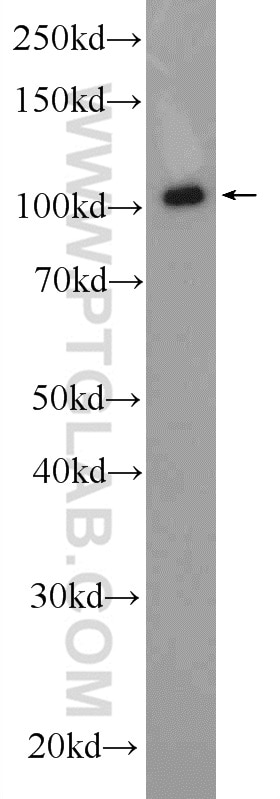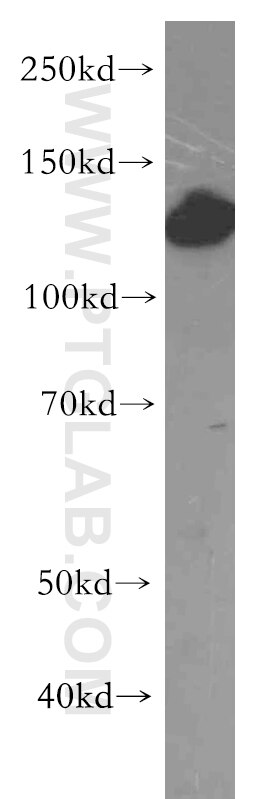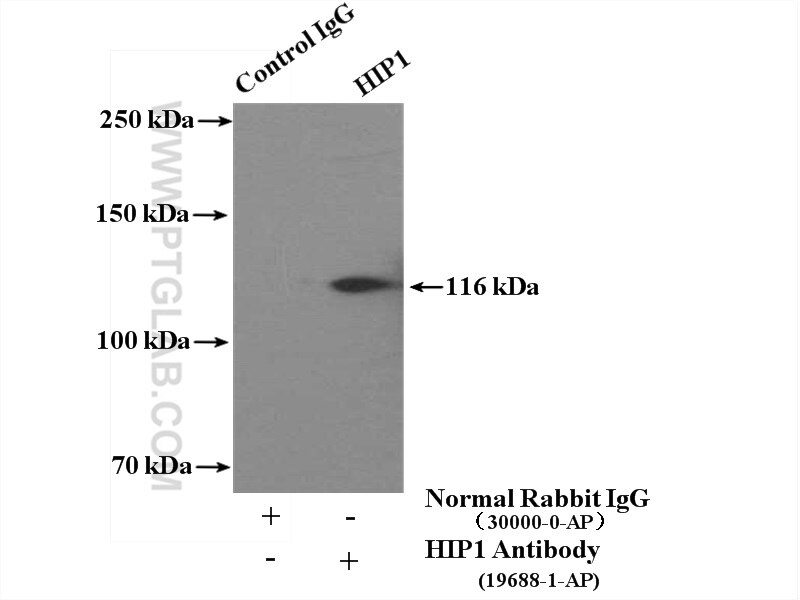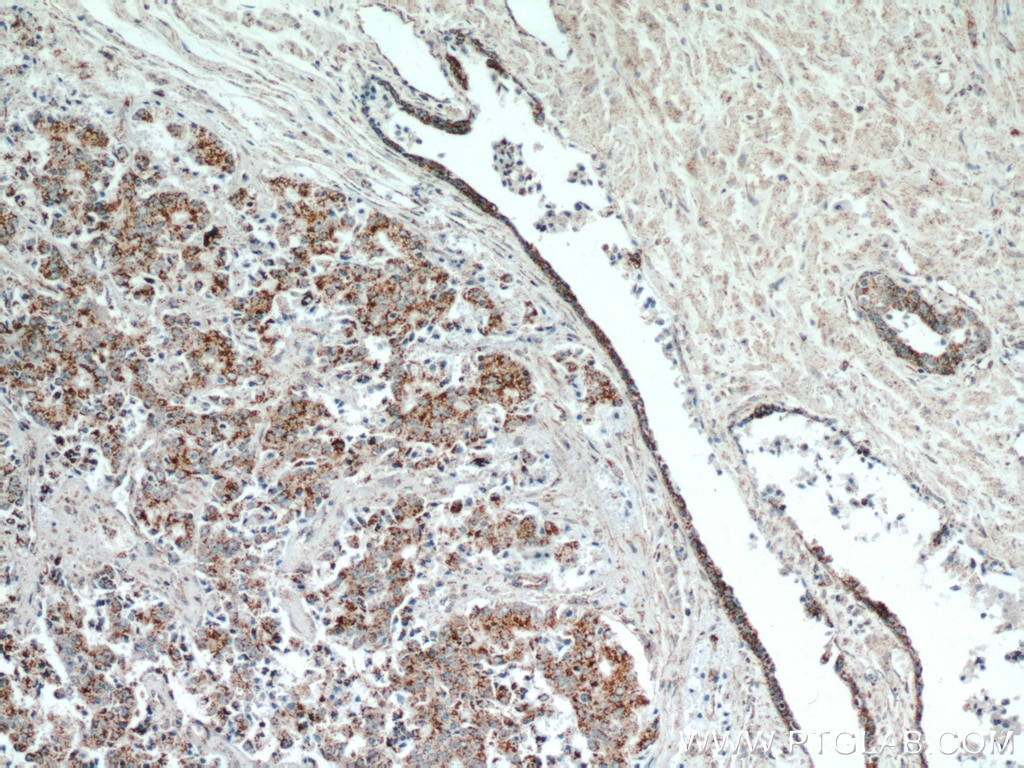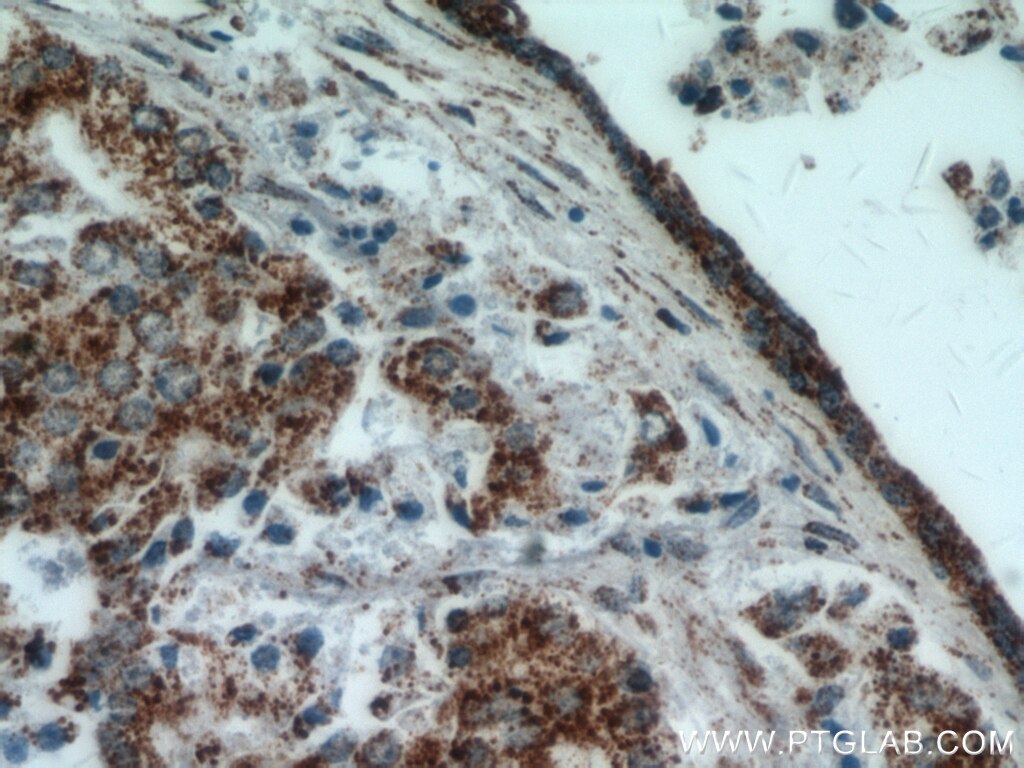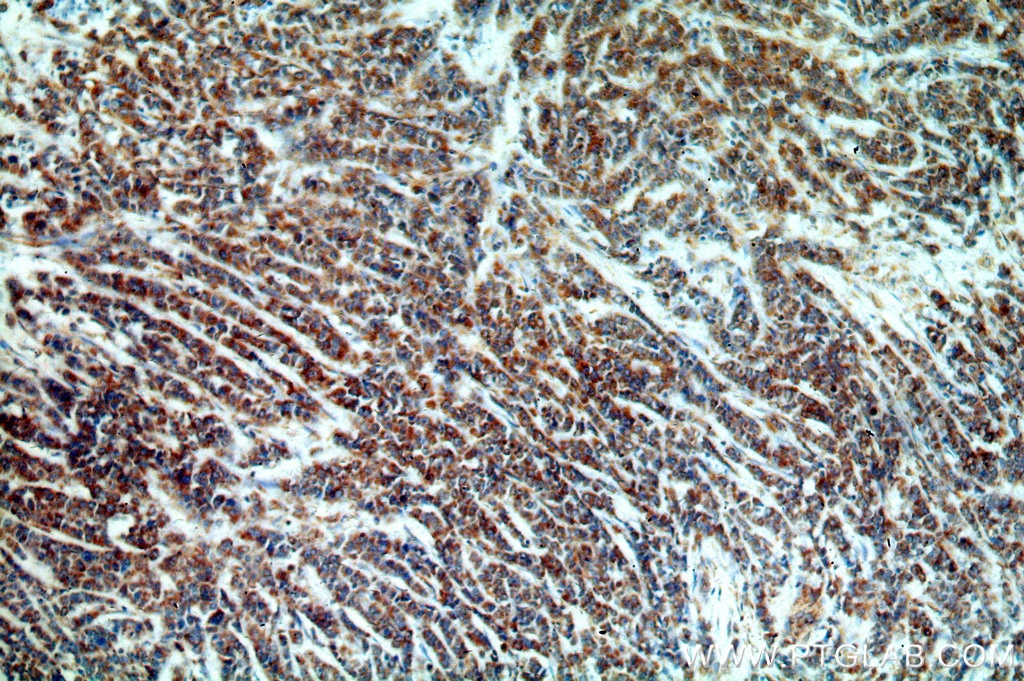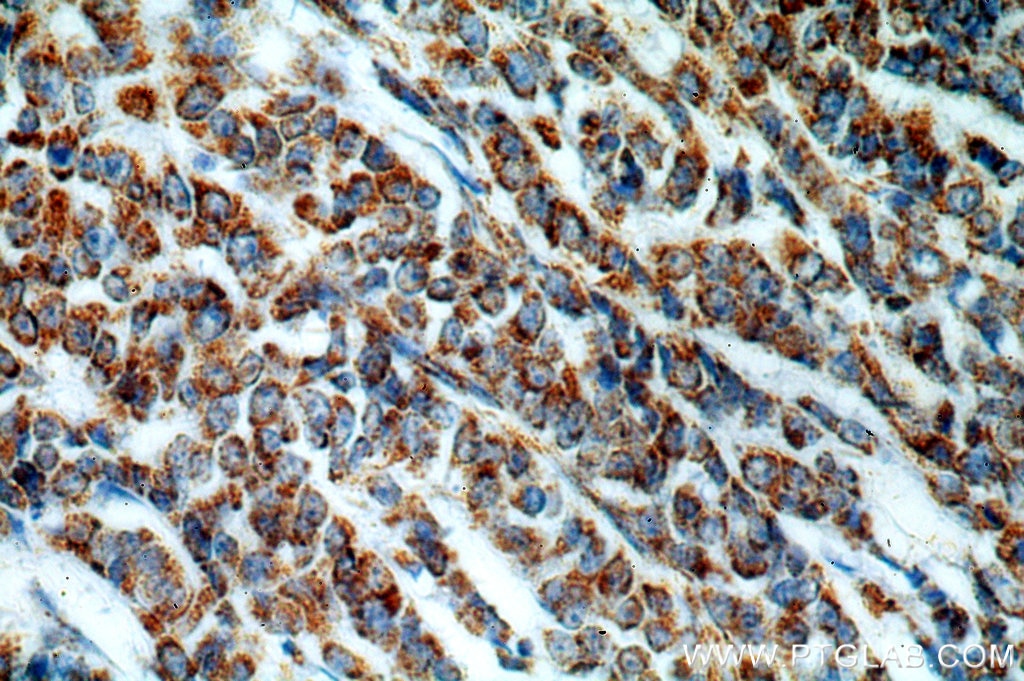Tested Applications
| Positive WB detected in | HEK-293 cells, mouse colon tissue, COLO 320 cells |
| Positive IP detected in | HEK-293 cells |
| Positive IHC detected in | human prostate cancer tissue, human colon cancer tissue Note: suggested antigen retrieval with TE buffer pH 9.0; (*) Alternatively, antigen retrieval may be performed with citrate buffer pH 6.0 |
Recommended dilution
| Application | Dilution |
|---|---|
| Western Blot (WB) | WB : 1:500-1:2000 |
| Immunoprecipitation (IP) | IP : 0.5-4.0 ug for 1.0-3.0 mg of total protein lysate |
| Immunohistochemistry (IHC) | IHC : 1:50-1:500 |
| It is recommended that this reagent should be titrated in each testing system to obtain optimal results. | |
| Sample-dependent, Check data in validation data gallery. | |
Product Information
19688-1-AP targets HIP1-Specific in WB, IP, IHC, ELISA applications and shows reactivity with human, mouse, rat samples.
| Tested Reactivity | human, mouse, rat |
| Host / Isotype | Rabbit / IgG |
| Class | Polyclonal |
| Type | Antibody |
| Immunogen | Peptide Predict reactive species |
| Full Name | huntingtin interacting protein 1 |
| Calculated Molecular Weight | 116 kDa |
| Observed Molecular Weight | 116 kDa |
| GenBank Accession Number | NM_005338 |
| Gene Symbol | HIP1 |
| Gene ID (NCBI) | 3092 |
| RRID | AB_10640443 |
| Conjugate | Unconjugated |
| Form | Liquid |
| Purification Method | Antigen affinity purification |
| UNIPROT ID | O00291 |
| Storage Buffer | PBS with 0.02% sodium azide and 50% glycerol, pH 7.3. |
| Storage Conditions | Store at -20°C. Stable for one year after shipment. Aliquoting is unnecessary for -20oC storage. 20ul sizes contain 0.1% BSA. |
Background Information
HIP1 (huntingtin interacting protein-1) is a endocytic protein that plays a role in clathrin-mediated endocytosis and trafficking. HIP1 can interact with huntingtin (HTT) protein whose mutations cause Huntington's disease (HD), thus gets involved in neurodegeneration. By stabilizing receptor tyrosine kinases following ligand-induced endocytosis, HIP1 may act to promote cell survival. HIP1 is overexpressed in a variety of human cancers and may be a potential predictor for cancer progression and prognosis.
Protocols
| Product Specific Protocols | |
|---|---|
| WB protocol for HIP1-Specific antibody 19688-1-AP | Download protocol |
| IHC protocol for HIP1-Specific antibody 19688-1-AP | Download protocol |
| IP protocol for HIP1-Specific antibody 19688-1-AP | Download protocol |
| Standard Protocols | |
|---|---|
| Click here to view our Standard Protocols |
